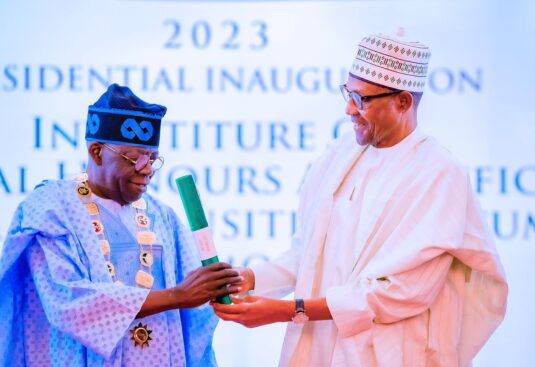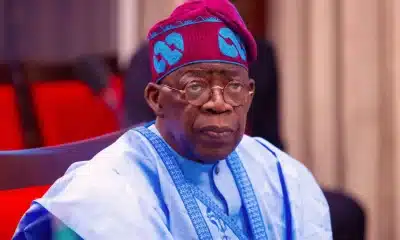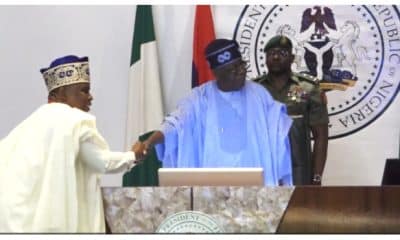Nigeria News
2023: Cryptocurrency, Old Naira Notes, Other Buhari’s Policies Reversed By Tinubu

Over the past six months, President Bola Tinubu has reversed several policies put in place by his predecessor, Muhammadu Buhari.
Despite belonging to the same political party, there are noticeable differences between the two leaders, particularly in terms of economic policies.
Tinubu, having served as the former Governor of Lagos State, aligns more with a liberal economic approach. On the other hand, Buhari, a former military leader, tends to adopt a more protectionist economic stance.
In 2013, both leaders collaborated to form a united front against former President Goodluck Jonathan.
For eight years, Tinubu remained relatively silent on government policies, only expressing his views when a policy seemed directed at him during elections. Specifically, during the election, he openly disagreed with the former administration on the implementation of the Naira redesigning policy.
Since assuming office, Tinubu has consistently rolled back some of the policies initiated by former President Buhari.
Here are the top four policies reversed by President Bola Tinubu
- Phase out of old Naira
The redesigning of the Naira emerged as a significant issue during the election, with many perceiving it as targeted at President Tinubu.
This policy resulted in a scarcity of the Naira, causing considerable hardship as individuals struggled to access cash for even basic transactions.
Some state governments contested the policy at the Supreme Court, but a verdict was not reached until after the election. The court ruled for the coexistence of the two currencies until December 2023.
However, in November, the government announced an indefinite extension of the validity of the old currency.
- Ban on Cryptocurrency
Another significant policy reversal by the current government involves the ban on cryptocurrency imposed by former CBN governor, Godwin Emefiele.
Under Emefiele’s leadership, the Central Bank of Nigeria (CBN) issued a directive on February 5, instructing all banks to close accounts associated with cryptocurrency transactions within their systems.
However, the new CBN governor, Yemi Cardoso, recently directed a reversal of this policy, effectively lifting the ban on cryptocurrency.
- 43 Items on Foreign Exchange Ban
In 2015, the CBN imposed a ban on 43 items, including rice, cement, and poultry, preventing them from accessing forex.
On October 12, the Central Bank of Nigeria (CBN) lifted the 8-year ban on 43 items that were previously restricted from accessing foreign exchange through the official market.
The recent decision by the monetary authorities allows importers of these items to purchase foreign exchange in the Nigerian Foreign Exchange Market.
It’s worth noting that protectionist policies were a cornerstone of the Buhari administration. The former President implemented measures such as the closure of land borders for an extended period to safeguard investments in the agricultural sector, particularly in rice production.
Under the leadership of Emefiele, the anchor borrowers’ program was employed to inject funds into the rice production sector.
- Removing ASUU from IPPIS
For years, university lecturers engaged in a prolonged dispute over the implementation of the Integrated Personnel and Payroll Information System (IPPIS) platform.
The lecturers argued that the IPPIS platform did not accommodate their unique circumstances and was depriving them of certain allowances and benefits. This annual disagreement resulted in months-long shutdowns of schools. During Buhari’s presidency, Nigerian universities were closed for a total of 1,086 days.
It is noteworthy that the Academic Staff Union of Universities (ASUU) proposed the University Transparency and Accountability Solution (UTAS) as an alternative to IPPIS. However, the Buhari administration rejected UTAS, leading to an extended period of industrial action that kept students at home.
In a shift, the Federal Executive Council (FEC) under the Tinubu-led administration approved the removal of university staff from the IPPIS.












